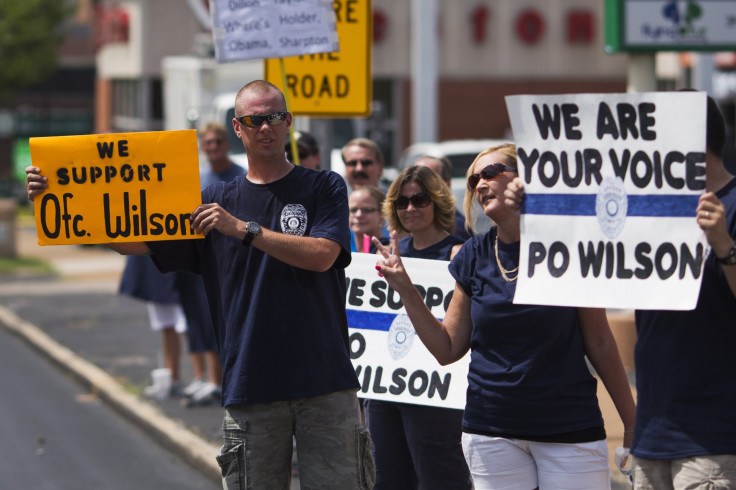Ferguson Indictment: Officer Darren Wilson, Ferguson Police Department Could Still Face Civil Charges

Officer Darren Wilson was not indicted by a grand jury Monday, but the battle for justice in the fatal Ferguson shooting is far from over. The U.S. Department of Justice is conducting its own investigation, the state could revoke Wilson's law enforcement license and several civil rights groups could file civil suits against both Wilson and the Ferguson Police Department.
After three months of deliberation and evaluating evidence, a sitting Missouri jury of 12 found there was not enough proof to indict Wilson for killing 18-year-old Michael Brown in August. The decision ends the possibility of Wilson going to a criminal trial, but the high-profile nature and demographics of the case have turned it into a civil matter. Brown’s family could sue the Ferguson Police Department and Wilson directly. Those suits could win monetary damages but not send anybody to jail.
“What happens or doesn't happen with the grand jury is irrelevant with the civil suit,” Steve Ryals, a Missouri civil rights, lawyer told the Huffington Post. “I would be flabbergasted if they didn't file a suit,” Ryals told the Huffington Post.
Wilson could also lose his police license. Missouri’s Department of Public Safety has the ability to review Wilson’s case and revoke his license. To revoke a law enforcement license, the state must prove that the official in question committed a crime -- regardless of whether or not there is an indictment, according to the Huffington Post. (Reports say that Wilson is planning to resign from the force.)
There are currently two open Department of Justice investigations related to Brown’s death: One probe into Wilson and the other into the Ferguson Police Department’s practices, according to McClatchy. The first could find Wilson guilty of violating Brown’s civil rights. The DOJ must prove “without a reasonable doubt” that Wilson knowingly and intentionally “deprived” Brown of “a right or privilege protected by the Constitution of laws of the United States,” according to federal law via McClatchy. However, experts don’t believe this is a likely outcome.
“Criminal enforcement of constitutional rights is not something that is easily pursued, Samuel Bagenstos, a University of Michigan law professor, recently told the Associated Press. It really requires building a case very carefully, very painstakingly.”
The DOJ and several civil rights organizations are investigating a possible case against the Ferguson Police Department for mistreatment of protesters who have been almost daily fixtures on Ferguson's streets since August. The DOJ is also investigating the department's practices and relationship with constituents prior to Brown’s death. When protests began, some police officers were seen wearing “I am Darren Wilson” bracelets.
“The expressive accessory itself is exacerbating an already tense atmosphere between law enforcement and residents in Ferguson,” according to a letter from the DOJ to the Ferguson chief of police. “These bracelets reinforce the very 'us versus them' mentality that many residents of Ferguson believe exists.”
Civil rights groups like Amnesty International have repeatedly called on the DOJ to review police policies across the country. In a statement released minutes after the grand jury’s decision, the group reiterated that call, specifying such practices as “the use of both excessive force and lethal force, the militarization of police and the United States’ adherence to its human rights obligations in policing protests.”
Ferguson police reportedly shot tear gas at protesters less than an hour after the grand jury’s decision was announced.
© Copyright IBTimes 2025. All rights reserved.






















